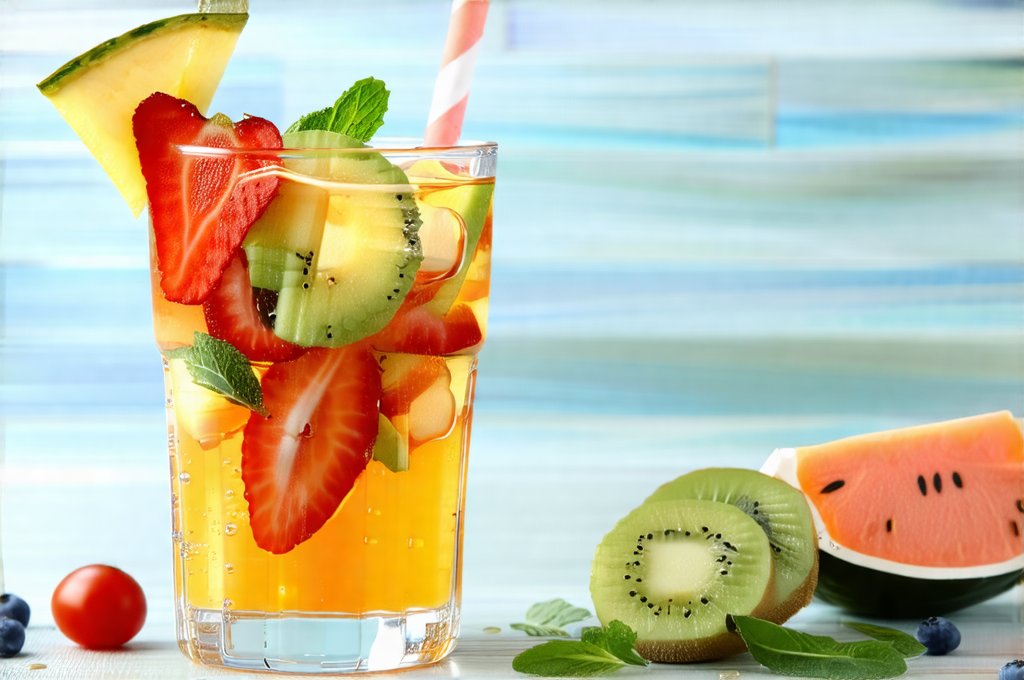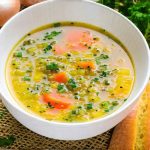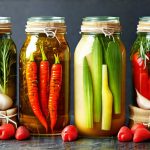Summer is often synonymous with light, refreshing meals – salads bursting with flavor, grilled fish, vibrant fruits. But for individuals managing Irritable Bowel Syndrome (IBS) and chronic constipation, the season can present unique challenges. Increased hydration is crucial in warmer months, yet simply drinking more water isn’t always enough. Dietary choices play a vital role, and many popular summer foods can actually exacerbate IBS symptoms or worsen constipation. The key lies in understanding which foods are gentle on the digestive system, promote regular bowel movements, and provide essential nutrients without triggering discomfort. This article will guide you through crafting hydrating summer meals specifically designed to support gut health and alleviate common IBS and constipation concerns, focusing on both delicious recipes and foundational dietary principles.
Many people living with IBS or chronic constipation find themselves restricting their diets significantly, leading to feelings of frustration and limitation. It’s a misconception that managing these conditions requires complete deprivation. Instead, it’s about making informed choices and incorporating foods that work for your body. Summer offers an abundance of naturally soothing options – from hydrating fruits and vegetables to easily digestible proteins. We’ll explore how to harness the power of seasonal produce and mindful eating to create a summer menu that is both enjoyable and beneficial for digestive wellbeing, offering a path towards greater comfort and freedom during these warmer months. Considering your hydration patterns throughout the day can really make a difference in managing symptoms.
Building Your IBS & Constipation-Friendly Summer Plate
A cornerstone of managing IBS and constipation through diet is understanding the role of fiber. While often touted as a solution for regularity, the type of fiber matters significantly. Insoluble fiber can sometimes aggravate IBS symptoms, particularly in those with diarrhea-predominant IBS (IBS-D). Soluble fiber, on the other hand, draws water into the intestines, softening stool and promoting gentle bowel movements – making it a more supportive choice for many individuals. Good sources of soluble fiber include oats, psyllium husk (use cautiously and start small!), flaxseeds, chia seeds, bananas, and cooked vegetables like carrots and squash. It’s crucial to introduce fiber gradually to avoid bloating or gas, and always pair increased fiber intake with adequate hydration. Understanding the link between gut microbiota and IBS can help you make informed choices about your diet.
Beyond fiber, prioritizing low-FODMAP foods is often beneficial for those with IBS. FODMAP stands for Fermentable Oligosaccharides, Disaccharides, Monosaccharides, And Polyols – essentially short-chain carbohydrates that can be poorly absorbed in the small intestine, leading to fermentation and gas production. Common high-FODMAP foods include onions, garlic, apples, pears, wheat, and dairy (lactose). There are many resources available online and through registered dietitians specializing in IBS to help identify FODMAP triggers and build a personalized dietary plan. Remember that FODMAP sensitivity varies greatly from person to person; what triggers one individual may not affect another. Designing plant-based meals can be a helpful approach for those avoiding certain food groups.
Finally, hydration isn’t just about drinking water – it’s also about consuming water-rich foods. Watermelon, cucumbers, berries, and even leafy greens contribute significantly to your daily fluid intake. Staying adequately hydrated is paramount for softening stool and preventing constipation, as well as supporting overall digestive function. Aim for at least eight glasses of water per day, and increase intake during hot weather or physical activity. It’s important to remember that low-acid diet plans can help manage symptoms like heartburn and indigestion.
Summer Hydration Strategies & Meal Ideas
Creating truly hydrating meals requires thinking beyond just the main course. Consider incorporating refreshing beverages like herbal teas (peppermint and ginger can be soothing for IBS), infused water with cucumber and mint, or diluted fruit juices (low-FODMAP options preferred). Smoothies are a fantastic way to pack in nutrients and hydration – blending spinach with banana, almond milk, and chia seeds is a simple yet powerful combination. For main courses, lean proteins like grilled chicken or fish paired with steamed vegetables and quinoa provide sustained energy without overwhelming the digestive system.
Salads can be incredibly beneficial if constructed carefully. Avoid high-FODMAP ingredients like onion and garlic, opting instead for herbs like chives and scallion greens for flavor. Use a simple vinaigrette made with olive oil, lemon juice, and a touch of maple syrup. Consider adding cooked sweet potato or carrots for a source of soluble fiber. Remember to portion control salad dressings, as excessive fat can sometimes trigger IBS symptoms. As a delicious dessert option, consider grilled peaches topped with dairy-free yogurt (coconut or almond based) and a sprinkle of cinnamon – a naturally sweet and satisfying treat. Many find comfort in comforting grain-based meals that are easy on the digestive system.
Boosting Bowel Regularity Through Food
- Plum Power: Prunes and prune juice are well-known natural laxatives due to their high sorbitol content, a sugar alcohol that draws water into the intestines. Start with small portions (2-3 prunes or ¼ cup of prune juice) to assess tolerance.
- Kiwi Kickstart: Kiwi fruit contains actinidin, an enzyme that aids in protein digestion and can help soften stool. Eating one kiwi per day has been shown to improve bowel regularity.
- Flaxseed & Chia Seed Boost: These seeds are rich in soluble fiber and omega-3 fatty acids, both of which support digestive health. Add a tablespoon to your smoothie or sprinkle over your oatmeal. Remember to drink plenty of water when consuming these seeds, as they absorb liquid.
Identifying Your Personal Triggers
IBS is highly individualistic, so identifying your specific trigger foods is essential. Keeping a detailed food diary can be incredibly helpful. Record what you eat, the time of day, and any associated symptoms (bloating, gas, diarrhea, constipation). This will help pinpoint patterns and identify potential culprits. Elimination diets – guided by a healthcare professional – can also be used to systematically remove and reintroduce foods to determine sensitivities.
Mindful Eating for Digestive Comfort
Beyond what you eat, how you eat plays a significant role in digestive wellbeing. Practicing mindful eating involves paying attention to your body’s hunger and fullness cues, chewing food thoroughly, and eating slowly. This allows the digestive system to work more efficiently and reduces the likelihood of overeating or consuming foods too quickly. Stress can also significantly impact digestion; finding ways to manage stress through techniques like yoga, meditation, or deep breathing exercises is crucial for overall gut health. Prioritizing a calm and relaxed mealtime environment can contribute to improved digestion and reduced IBS symptoms. If you are looking at preparing and seasoning meals differently, focusing on minimizing upset is key.


















